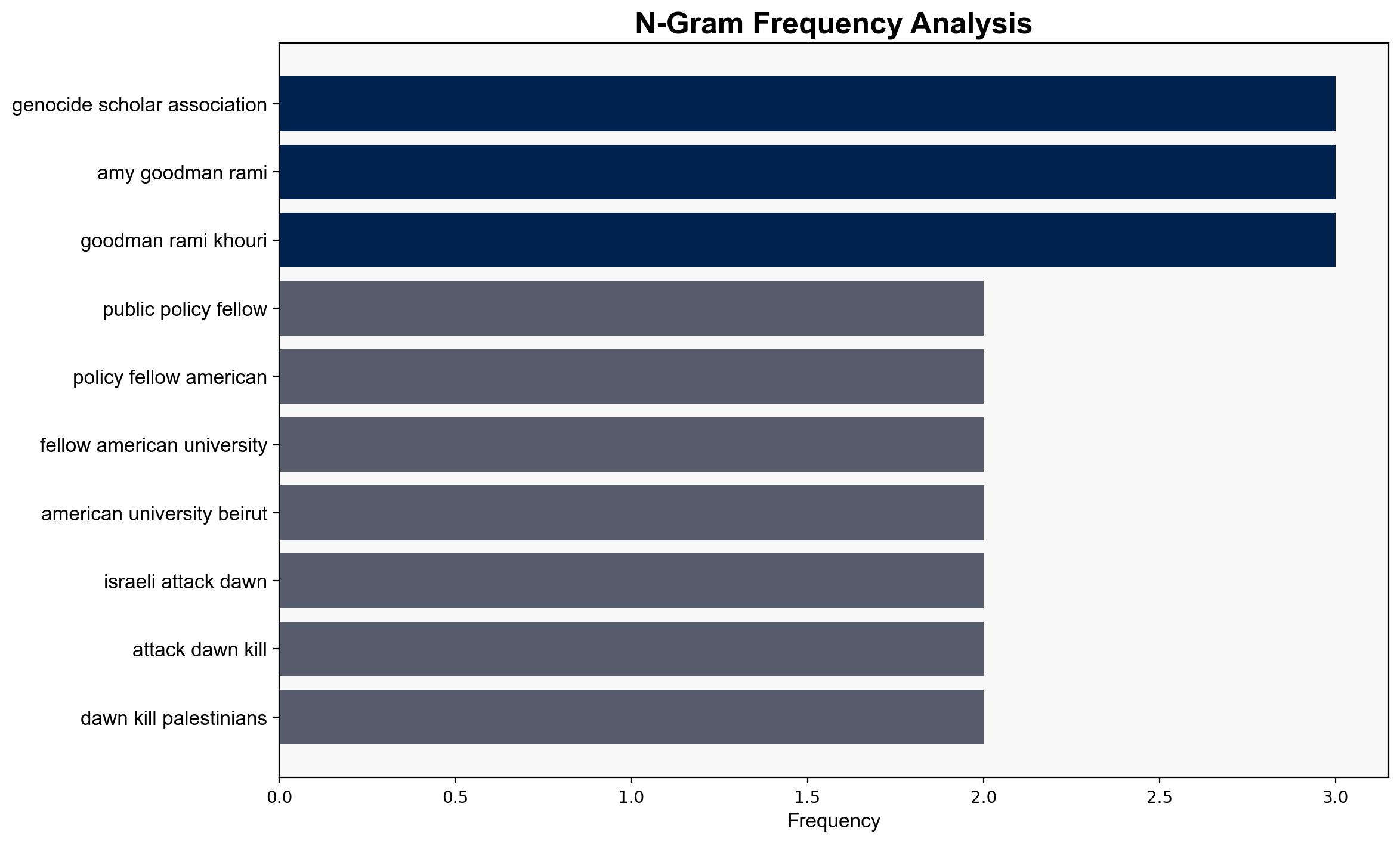Will Western Powers Take Action Rami Khouri on Scholars Declaring Genocide in Gaza – Democracy Now!
Published on: 2025-09-02
Intelligence Report: Will Western Powers Take Action Rami Khouri on Scholars Declaring Genocide in Gaza – Democracy Now!
1. BLUF (Bottom Line Up Front)
The most supported hypothesis is that Western powers are unlikely to take immediate, significant action in response to the declaration of genocide in Gaza by the International Association of Genocide Scholars. Confidence level: Moderate. The recommendation is to monitor diplomatic communications and public statements for shifts in policy or rhetoric, while preparing for potential humanitarian interventions.
2. Competing Hypotheses
1. **Western Powers Will Take Action**: The declaration by genocide scholars will prompt Western governments to take diplomatic or economic actions against Israel, potentially including sanctions or increased humanitarian aid to Gaza.
2. **Western Powers Will Not Take Action**: Despite the declaration, Western powers will refrain from significant intervention due to geopolitical alliances, domestic political considerations, and the complexity of the Israeli-Palestinian conflict.
Using ACH 2.0, the second hypothesis is more supported by historical patterns of Western responses to similar declarations and the strategic importance of Israel as an ally.
3. Key Assumptions and Red Flags
– **Assumptions**: The assumption that Western powers prioritize international legal findings over strategic alliances is critical to the first hypothesis. The second hypothesis assumes that geopolitical and domestic factors outweigh international pressure.
– **Red Flags**: The lack of immediate, strong condemnation or action from Western leaders following the declaration is a red flag for the first hypothesis. Additionally, potential bias in media reporting and the framing of the situation could skew public perception and policy responses.
4. Implications and Strategic Risks
– **Geopolitical Risks**: Failure to act could exacerbate tensions in the Middle East, potentially leading to increased violence and instability.
– **Economic Risks**: Sanctions or other economic actions could impact global markets, particularly in energy and defense sectors.
– **Psychological Risks**: Continued inaction may erode public trust in international institutions and Western governments’ commitment to human rights.
5. Recommendations and Outlook
- Monitor diplomatic channels and public statements for shifts in policy or rhetoric.
- Engage in backchannel communications to assess the likelihood of coordinated international responses.
- Prepare for potential humanitarian interventions to mitigate the impact on civilian populations.
- Scenario Projections:
- Best Case: Diplomatic pressure leads to a ceasefire and renewed peace talks.
- Worst Case: Escalation of violence and further regional destabilization.
- Most Likely: Continued status quo with limited international intervention.
6. Key Individuals and Entities
– Rami Khouri
– Melanie O’Brien
– International Association of Genocide Scholars
7. Thematic Tags
national security threats, geopolitical analysis, international law, humanitarian intervention




